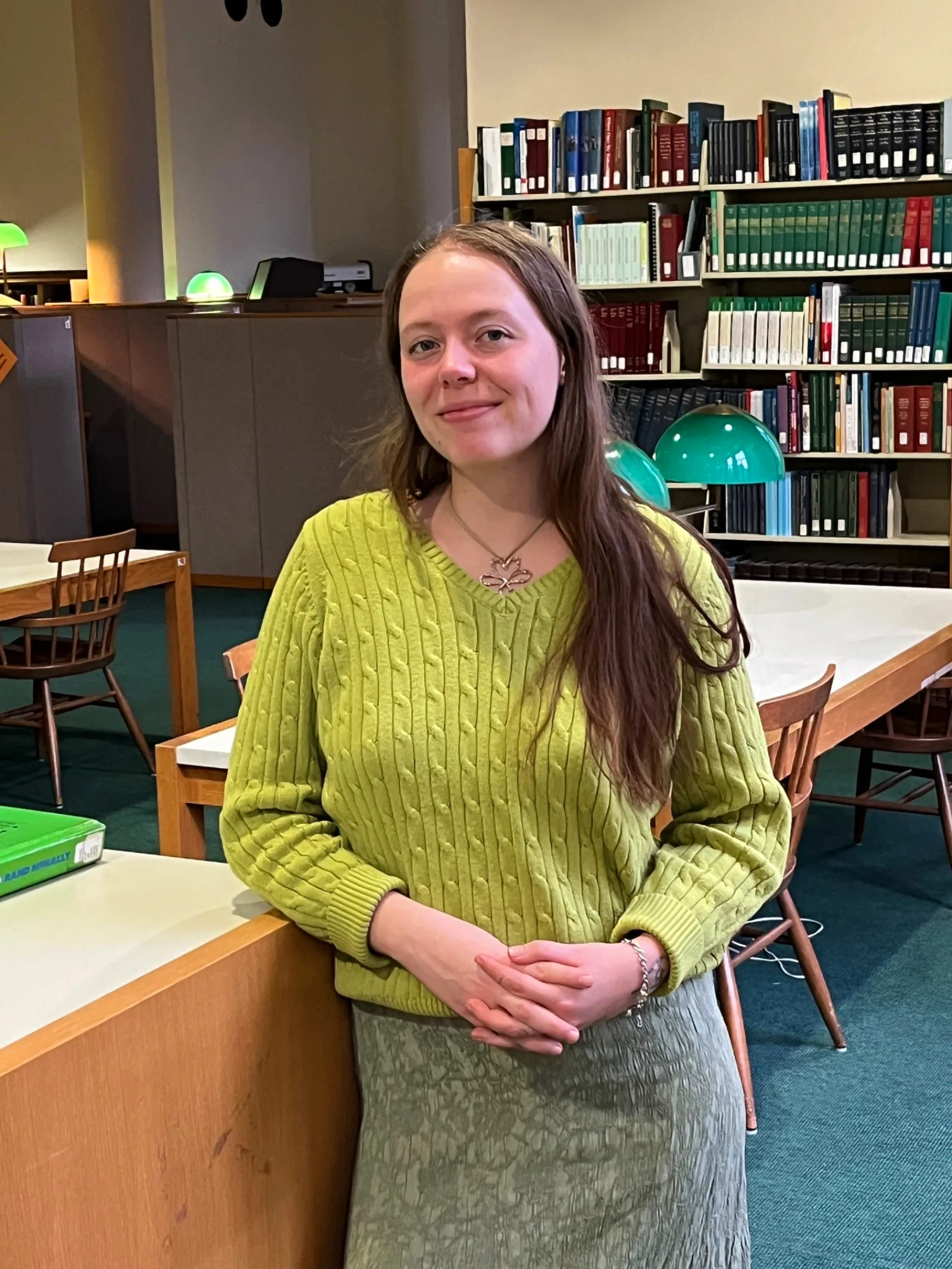When Alvin Patrick was seeking information on first editions of W.E.B. Du Bois’ The Souls of Black Folk, he turned to the Newberry Library for help. Alvin is a book collector, an Executive Producer at CBS News, and a trustee of Marist College. He owns an early edition of the volume but didn’t know how many were ever printed.
“I was stumped. I had no idea,” he said in a recent talk at the Grolier Club in New York.
The Newberry is home to the records of A.C. McClurg and Company, publisher of Du Bois’ 1903 classic. That’s where Kinsey Major comes into the story. Kinsey is a Library Assistant at the Newberry and answered a query Alvin sent to our general reference email address. It is the type of request received daily, and one that illustrates how Newberry staff responds in a timely and thorough way.
“Within hours, Kinsey responded and said she would look into it,” Alvin said during his presentation, a clip of which is available to view online (check the 13:30 mark for the section about Kinsey).
“It was just a normal reference request,” Kinsey later recounted.
The next day, Kinsey sent Alvin a digital copy of a letter that Du Bois had written to the publisher in 1935, seeking the number of copies sold since 1903 and total royalties. It was the first step toward determining how many first edition copies of Souls were printed.
By searching company records, Kinsey found that twenty editions were published between 1903 and 1935. She also provided Alvin with a letter the company sent to Du Bois with the information he requested. From there, Alvin deduced that his copy was among the first 1,000 to 2,000 printed.
Kinsey’s superb efforts helped Alvin learn more about his book, but also uncovered insight into Du Bois’ tenuous financial situation.
“Du Bois made a lot of money in his life, and he spent lavishly and incurred a lot of losses when investing in Harlem real estate,” Alvin said at the Grolier Club.
It was a lens into an iconic American figure and story that may have gone untold without the McClurg records—and Kinsey’s assistance.
“This is such a great example of the impact that the work that we all do has on people’s lives and research,” said Will Hansen, "from processing collections to making them discoverable online to answering reference questions in a timely and thorough way.”
